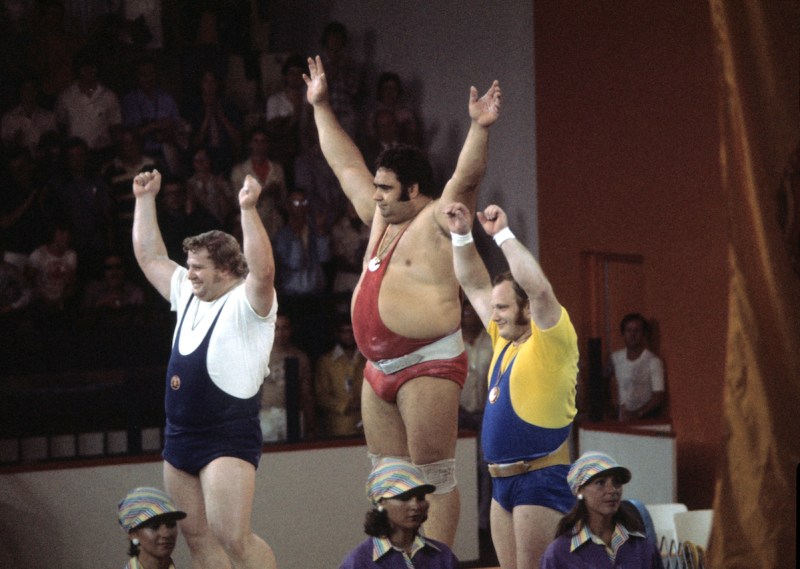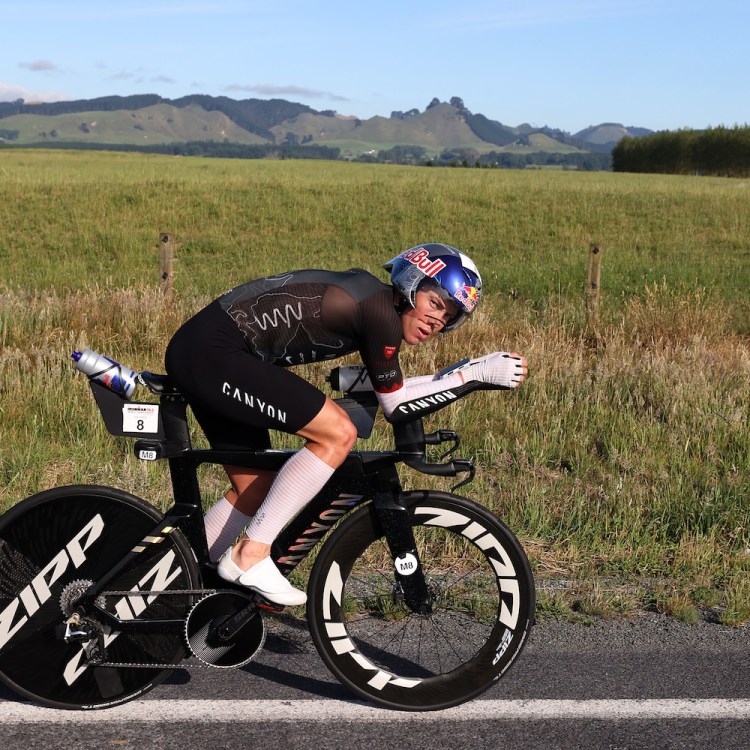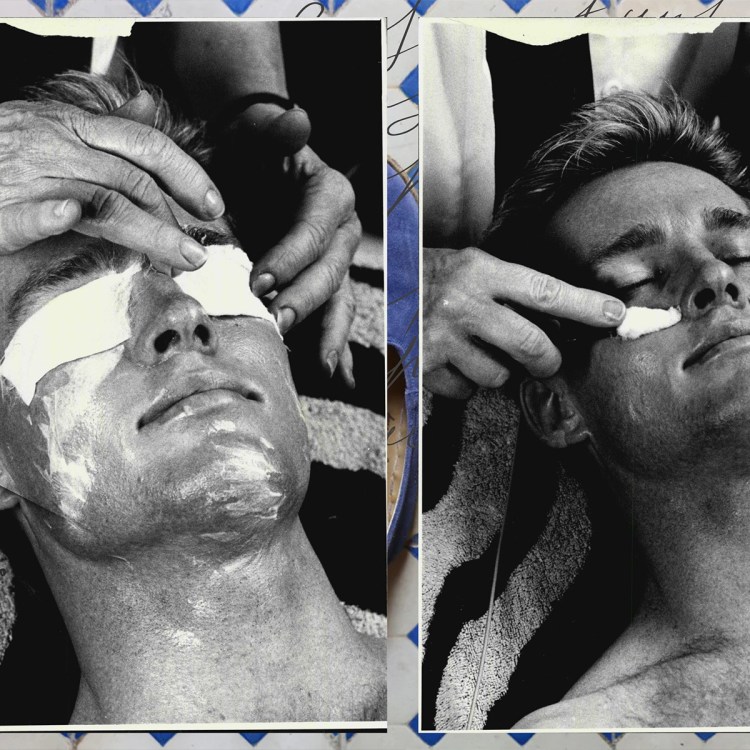
Gerd Bonk was born in what was then East Germany in 1951, the Communist state formed after Soviet forces occupied it at the end of World War II. In 1966, he began to compete for the local weightlifting team. Standing 6’1″ tall and weighing 320 pounds, he achieved every athlete’s dream of winning an Olympic medal when he took home the silver in 1976 with a lift of just over 518 pounds.
Bonk was one of 22 weightlifters from the Eastern Bloc to win a medal that Olympics. (Indeed, look at the photo of Bonk’s medal podium at the bottom of the article.) One of the major reasons for that success: doping. And in Bonk’s case, a remarkable amount of it.
It’s uncertain when Bonk began doping. It’s known East Germany had a pilot program in 1966. It’s also known that the national weightlifting team’s doctor believed that results would continually improve if you steadily increased the amount of steroids an athlete consumed. And when Bonk set a world record and East Germany began to bill him as the world’s strongest man, a particular focus became making sure he never lacked for them.
Indeed, in a 12-month period from 1978 to 1979 alone, Bonk consumed 12,775 milligrams of steroids, the highest amount ever recorded and believed to be a record. (When the scale of his usage was revealed, Der Spiegel wrote: “West German calf breeders would use a similar dose to fatten an entire stable.”)
Horrifyingly, East Germany gave him this massive dosage even after discovering he had diabetes. Despite his unprecedented steroid intake, Bonk still missed the 1980 Olympic team and his shot at gold and then retired.
His kidneys soon began to fail, likely due to the steroid use. By 1984, the former world’s strongest man was confined to a wheelchair and struggled to hold down a job with all his physical problems. Still, Bonk outlived East Germany, as Germany unified in 1990. Bonk died in 2014, at age 63, apparently finding some solace in collecting Beatles records.
To read more about the bizarre, ultimately tragic career of Gerd Bonk and the general culture of doping in East Germany, click here.

The Charge will help you move better, think clearer and stay in the game longer. Subscribe to our wellness newsletter today.


















